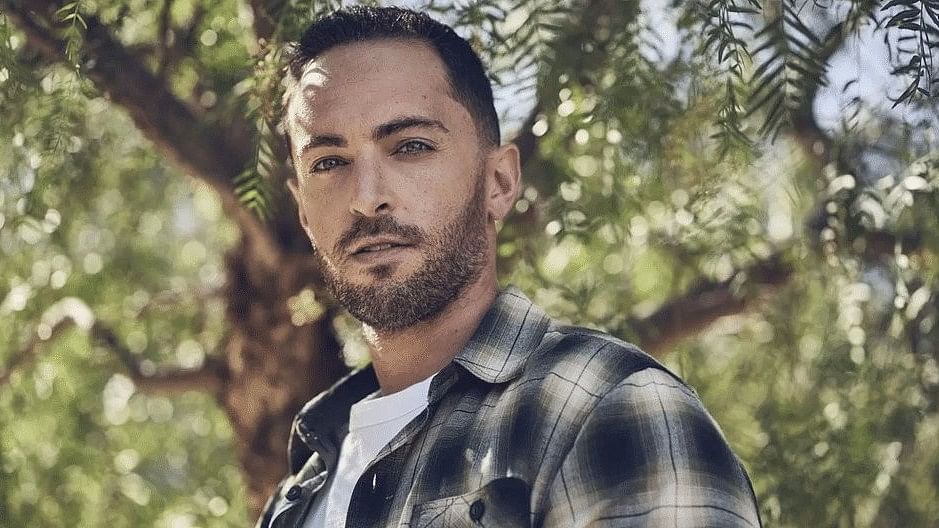
Zachary Horwitz aka Zach Avery.
Credit: X/@markuscapote
An Indiana-based man, identified as Zachary Horwitz, is serving 20 years in prison for raising over a whopping $690 million from his family, friends among other investors after he convinced them for his "fake" licensing business" through which he claimed of negotiating terms with big entertainment platforms like Netflix, HBO, and Sony.
Horwitz used all the money to spend a lavish lifestyle with his wife who divorced him after he was convicted in 2022.
Horwitz, who goes by the stage name Zach Avery, arrived in California to make a fortune in Hollywood where he starred alongside actors Bryan Cox, Bruce Dern and Olivia Munn. He appeared as a supporting cast in the 2020 film Last Moment of Clarity after which he was seen in The Gateway which starred Dern and Munn.
How did Horwitz dupe people?
New York Post quoted excerpts from the court records that said Horwitz aka Zach Avery ran his 'Ponzi scheme' for five years where he convinced his friends, who in turn persuaded their parents to help Horwitz get the "fake" rights to Spanish-language films.
Investigators told the court that Horwitz discovered old distribution contracts and then copy-pasted them into Microsoft Word documents that were fake. He would forge signatures of executives whose names he searched for on LinkedIn in order to convince investors, so they lend him money.
Horwitz even went on to show his investors' text messages which were "fake" that he claimed were sent to him by Netflix and HBO executives.
As per a statement by the Securities and Exchange Commission, Horwitz assured his investors returns in excess of 35 per cent, and for many years paid supposed returns on earlier investments using funds from new investments.
Investigators also said that Horwitz hired a woman to impersonate an HBO executive who would then speak to his investors on call in order to answer questions they may have about his "fake" deals.
What did Horwitz do with the investors' money?
According to prosecutors, Horwitz used all the money he borrowed from investors to pay for private jet flights and yacht trips as well as $605,000 for luxury cars that included a Mercedes-Benz and an Audi; $174,000 for party planners; and $54,600 for a “luxury watch subscription” service.
Statements of Horwitz's victims
A friend of Horwitz, identified as one Jacob Wunderlin, who was also his batchmate at Indiana University in Bloomington said that he was persuaded to invest $37,000 based on a contract that Horwitz showed. Wunderlin said that Horwitz made the document look as if he was selling the rights of a Mexican rom-com titled Doseo to Sony.
Within 90 days, Wunderlin was repaid the principal plus an additional $9,000 in profit, The New Yorker magazine reported.
Horwtiz also claimed that his film company that he called 'Rogue Black' was backed by former Starbucks CEO Howard Schultz.
To support this, he showed Wunderlin an email that appeared to come from Schultz’s own account. Based on what Horwitz showed Wunderlin, the latter went on to convince his parents to invest half of their retirement savings in the above schemes.
Referring to the returns of up to 20 per cent as boasted by Horwitz— another friend Joseph deAlteris said, “We’re getting paid on time. Real cash. Without fail.”
In a two-year period, Horwitz’s friends made a profit on some 27 fictitious movie deals. A few of Horwitz's friends including DeAlteris went on to take loans to invest in his schemes. DeAlteris convinced his widowed mother, who is a retired physician’s assistant, to invest $40,000.
When Horwitz ran out of investors
Eventually, Horwitz's investors faced a delay in getting back the profit along with what they had invested. When the investors made repeated calls to Horwitz seeking their invested sum, the latter threatened them with lawsuits on calls.
One such investor who is also a screenwriter submitted to the federal judge who presided over Horwitz’s case that he lost $1.8 million in the scheme. Another 64-year-old investor said he had to come out of retirement just to make ends meet after losing $1.4 million.
“I cry every day and have stopped seeing friends or family because of the shame of this financial loss and have a now severe distrust of other human beings,” the unnamed investor told Los Angeles federal court on February 14, 2022 — the day that Horwitz was sentenced to two decades behind bars.